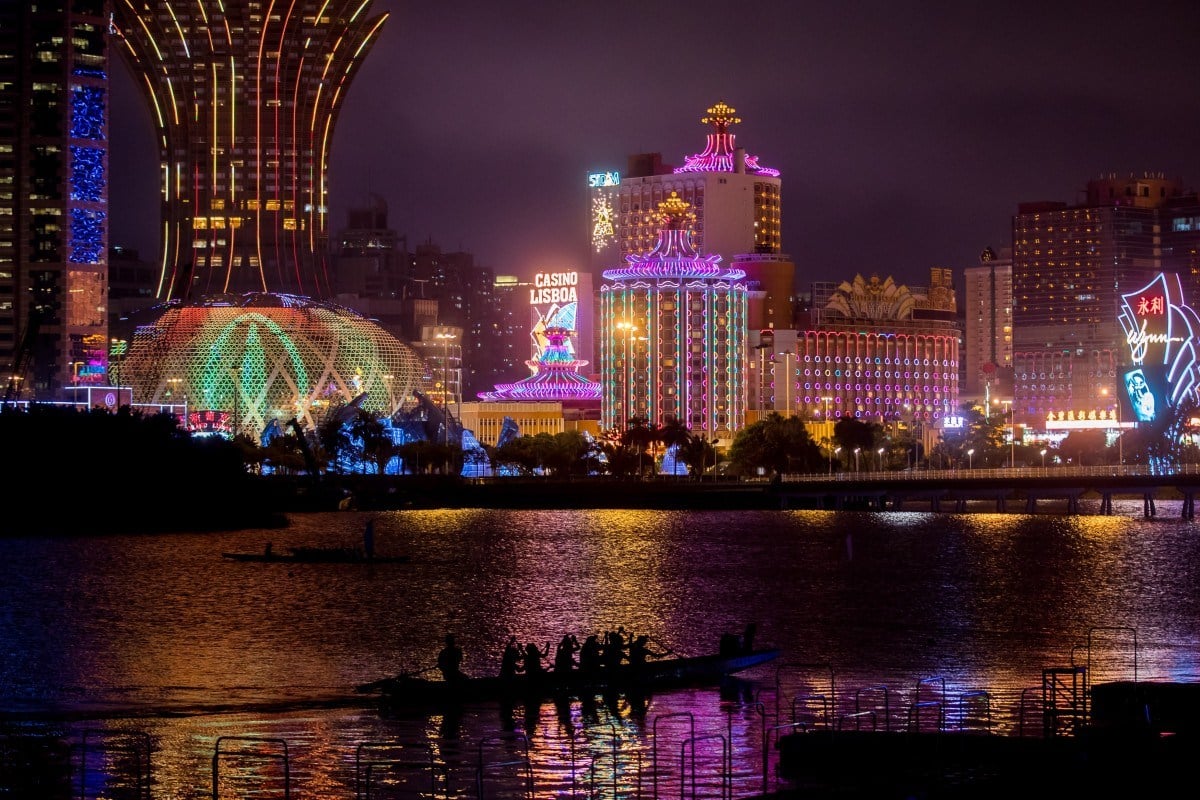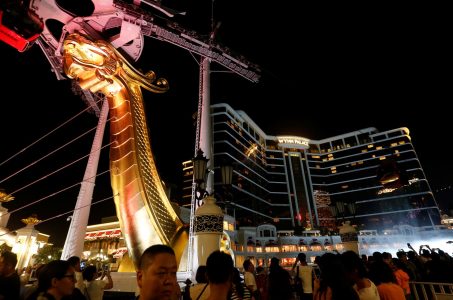Asia-Pacific Gaming Earnings Feel Coronavirus Crimp, Projected to Fall 70 Percent
Posted on: June 28, 2020, 08:00h.
Last updated on: June 30, 2020, 01:44h.
The coronavirus pandemic is presenting the Asia-Pacific casino industry with gale-force headwinds, as earnings before interest, taxes, depreciation and amortization (EBTIDA) in the region could slide as much as 70 percent this year, according to the research firm, Moody’s Investors Service.

Citing declining international travel, property closures, and ongoing social distancing measures, the firm says earnings in marquee gaming markets in the region, including Macau and Singapore, will be depressed in 2020. It also predicted a modest rebound next year.
We assume the earnings recovery will start in the second half of 2020, following a very weak first half,” said the ratings agency. “Still, earnings in 2021 will be lower than in previous years. Downside risks to our forecasts are significant, particularly if the pandemic is not contained and lockdowns have to be reinstated.”
Moody’s rates the credit profiles of nine gaming firms with Asia-Pacific footprints, including Las Vegas Sands (NYSE:LVS), MGM Resorts International (NYSE:MGM), Melco Resorts & Entertainment (NASDAQ:MLCO), and Wynn Resorts (NASDAQ:WYNN).
Earlier this year, officials in Macau — the world’s largest gaming center — ordered a 15-day closure of integrated resorts. Other Asia-Pacific nations with casinos followed suit. In Singapore, Marina Bay Sands and Resorts World Sentosa, the city-state’s two gaming venues, are only partially reopened, and the casinos at those hotels remain closed.
Restrictions Galore
Over the first half of this year, all of the APAC gaming markets tracked by Moody’s, including Australia, Macau, Malaysia, and Singapore, implemented various travel restrictions and casino shutdowns. Many of those protocols remain in place, stifling hopes of a near-term recovery for the tourist-dependent industry.
“Slower economic growth will also hurt revenue. The highly discretionary and nonessential nature of consumer spending on casino gaming makes the sector extremely vulnerable to changes in regional and domestic economic conditions,” Moody’s said.
Adding to the pressure on APAC operators is the specter of a second wave of COVID-19 cases. China — the world’s second-largest economy and a major source of gamblers for casinos in Australia, Macau, and Singapore — reported nearly 300 new cases since June 11 in the capital city of Beijing,
The country’s death toll is 4,634 and unchanged since the middle of last month. But a resurgence in case counts could force policymakers to extend punitive travel controls and cumbersome quarantine policies.
Rough Outlooks
Following the coronavirus outbreak, Fitch Ratings, Moody’s, and Standard & Poor’s (S&P) — the three major credit agencies — are active in lowering ratings and outlooks on gaming companies.
Moody’s rates nine Asia-Pacific operators, and has “negative” outlooks on all nine. That means bond grades, many of which already in junk territory, are susceptible to downgrades.
Those glum views “reflect the uncertainties around the reopening of casino properties and the pace at which operating performance will recover,” said the research firm.
With an A3 credit rating, Genting Singapore is the highest-rated issuer of the nine covered by Moody’s. At Baa3, Las Vegas has the top mark among US-based gaming firms with Asia-Pacific operations.
Related News Articles
Wynn Resorts Stock Favored as Analysts See Macau Headwinds Abating
Macau Casino Stocks Rally as Some Travel Restrictions Ease
Most Popular
Mirage Las Vegas Demolition to Start Next Week, Atrium a Goner
Where All the Mirage Relics Will Go
Most Commented
-
Bally’s Facing Five Months of Daily Demolition for Chicago Casino
— June 18, 2024 — 12 Comments -
Chicago Pension Mess Highlights Need for Bally’s Casino
— July 2, 2024 — 5 Comments
















No comments yet